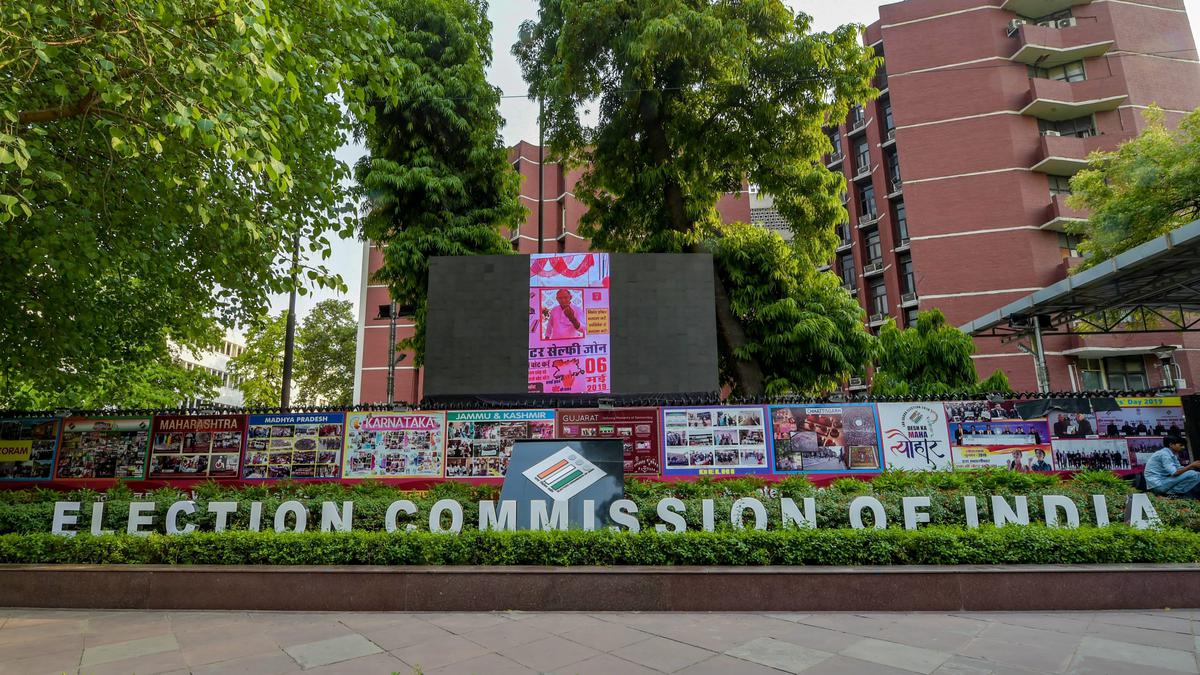Context
- The Supreme Court ruled that the appointment of the Chief Election Commissioner (CEC) and Election Commissioners by the President will be based on the advice of a three-member high-level committee comprising the Prime Minister, the Leader of the Opposition in the Lok Sabha and the Chief Justice of India (CJI).
What is the current process of selection of Election Commissioners?
- There are just five Articles (324-329) in Part XV (Elections) of the Constitution. Article 324 of the Constitution vests the “superintendence, direction and control of elections” in an Election Commission consisting “of the Chief Election Commissioner and such number of other Election Commissioners, if any, as the President may from time to time fix”.
- The Constitution does not lay down a specific legislative process for the appointment of the CEC and ECs. The President makes the appointment on the advice of the Union Council of Ministers headed by the Prime Minister.
- The appointment of Election Commissioners falls under the purview of Article 324(2) of the Constitution.
- The provision states, “The Election Commission shall consist of the Chief Election Commissioner and such number of other Election Commissioners, if any, as the President may from time to time fix and the appointment of the Chief Election Commissioner and other Election Commissioners shall, subject to the provisions of any law made in that behalf by Parliament, be made by the President.”
- As per the ‘subject to’ clause, the number and tenure of the ECs are subject to the provisions of “any law made on that behalf by Parliament”. No such law has, however, been made for appointments yet.


Photo Credit: PTI - Currently, the President appoints the CEC and two ECs on the advice of the Prime Minister and council of ministers. Under the Election Commission (Conditions of Service of Election Commissioners and Transaction of Business) Act, 1991, an EC can have a tenure of six years or up to the age of 65, whichever is earlier.
- Typically, the senior-most election commissioner is appointed as the CEC.
- Once appointed, the Chief Election Commissioner can be removed from office only through Parliamentary impeachment. However, no such protection of tenure is available to Election Commissioners, who can be removed by the government on the recommendation of the CEC.
What revision has the top court ordered?
- As per the Supreme Court’s directions, a panel that includes the Prime Minister, the Leader of the Opposition in Lok Sabha and the Chief Justice of India will now advise the President regarding the appointment of Election Commissioners similar to the appointment of the Director of the Central Bureau of Investigation.
- If the position of the Leader of the Opposition is vacant, the leader of the single largest opposition party will be on the committee.
- This system of appointment will be in force till the Parliament comes up with a specific law, the SC said.
- The Constitution Bench appealed to the Parliament and the central government to constitute an independent secretariat for dealing with the expenditure of the Commission to insulate it from any financial obligation to the government.
Visit Abhiyan PEDIA (One of the Most Followed / Recommended) for UPSC Revisions: Click Here
IAS Abhiyan is now on Telegram: Click on the Below link to Join our Channels to stay Updated
IAS Abhiyan Official: Click Here to Join
For UPSC Mains Value Edition (Facts, Quotes, Best Practices, Case Studies): Click Here to Join
